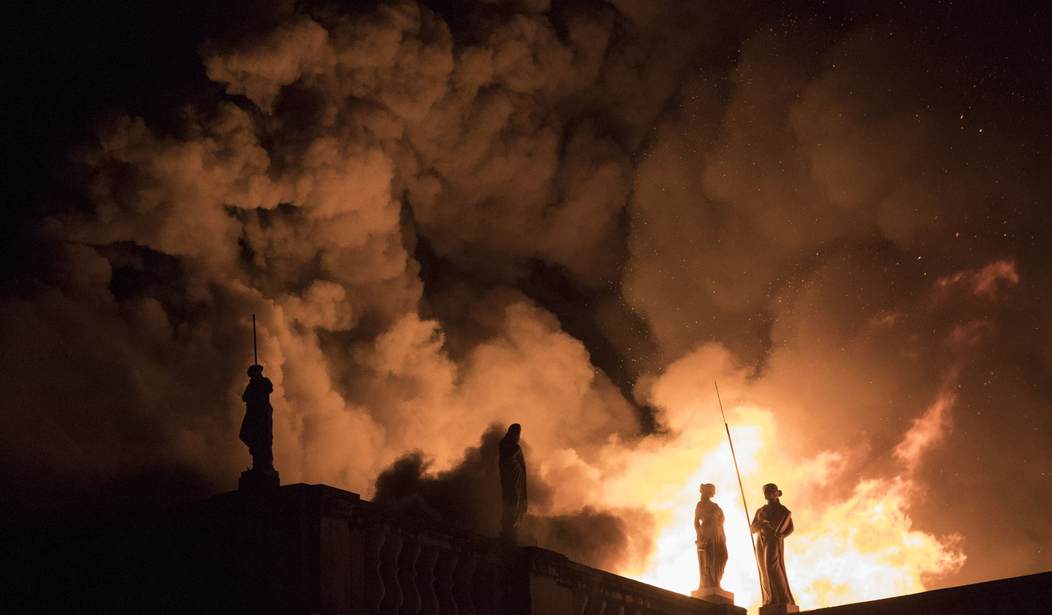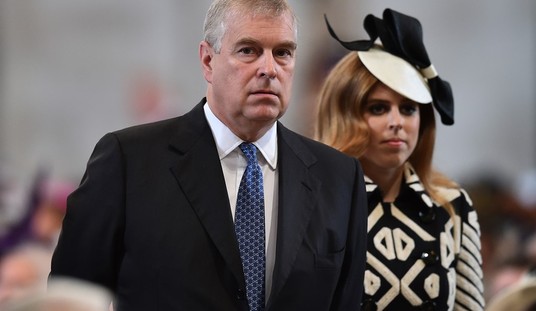You learn a lot on Twitter about banking, and it’s fascinating. Simple stuff to start, like if Jim Cramer says “This is the GREATEST [fill in the blank]!!!” I now know to giggle and run the other way as fast as I can.
If I had any money, that is, so this is rhetorical, of course. Since I don’t, I’ve learned to sit back and watch whatever he’s loving explode shortly after he acts the fool about it.
I’ve also learned that the people in charge of our finances right now – with Treasury Secretary Janet Yellen and Federal Reserve Chairman Jerome Powell at the top of the power structure – are not the sharpest tools in the partisan box, and are woefully unprepared for an economic storm, blame for much of which can be laid at their feet.
There has been significant pushback against Powell for raising interest rates too precipitously in his semi-panic to get Yellen’s “transitory” inflation under control. Yellen has placed equally as talentless and incompetent acolytes in important positions where they have overseen…no, that’s the wrong word. Because the problem is they did little to no “overseeing” at all. The GAO ripped Yellen’s protege’s (Mary Daly who heads the San Francisco Fed) “oversight” of failed Silicon Valley Bank.
From GAO report on SVB failure…SF Fed did not, itself, recommend a single enforcement action #FedFailure pic.twitter.com/AQZHGiMXha
— Mark Calabria (@MarkCalabria) April 30, 2023
Senators from both parties (Grr, paywall) went after the SF Fed, too.
The Federal Reserve Bank of San Francisco has emerged as a political target in the wake of Silicon Valley Bank’s failure last week.
Sens. Elizabeth Warren, D-Mass., Tim Scott, R-S.C., and Ted Cruz, R-Texas, are among those who have voiced criticisms of the regional reserve bank, saying it is distinctly responsible for failing to remedy flaws on the $200 billion bank’s balance sheet that proved fatal.
“The San Francisco Fed’s failure to address SVB’s obviously risky structure is frankly shocking,” Cruz, the ranking Republican on the Senate Commerce Committee, wrote in a letter to the heads of the reserve bank and Silicon Valley Bank this week. “As you know, one of the central purposes of the Federal Reserve System is to promote the safety and soundness of financial institutions. It employs a team of over 400 economists, including dozens in the supervision and regulation division.”
The ripple effect from that failure caused two more West Coast banks to go under, and Yellen’s confusing response concerning FDIC depositors being “made whole” regardless of deposit amounts escalated the situation into Theater Macabre.
As you might expect, only the well-heeled, bazillionaire, liberal, Democratic donor-class customers of SVB were “made whole” and no one else ever again would get such a deal.
There have been a number of bank failures in the past weeks, including [corrected: Beege] First Republic. In an initial attempt to stabilize and save it, the Fed and Treasury had rounded up billion-dollar deposit injections from the Too Big To Fail banks, but all for naught.
It went under.
Everything is fine y’all!!! pic.twitter.com/HVMuVGjktT
— Israel75 (@IFNY2775) May 3, 2023
Its demise worked out well for a couple of folks, though. J.P. Morgan’s Jamie Dimon, even though they’d dumped billions into it, got to buy the remnants for pennies on the dollar. They are the 900 lb gorilla in the room.
America’s biggest bank just got even bigger.
JPMorgan Chase & Co.’s purchase of failed First Republic Bank boosts the New York bank’s massive loan book and dominant deposit franchise. It gives the megabank a new crop of rich customers at a time when it is trying to expand its wealth-management operation. And it allows Chief Executive Jamie Dimon to once again play the role of industry savior.
JPMorgan used its huge balance sheet to beat out smaller banks for First Republic, which was seized early Monday by the Federal Deposit Insurance Corp. First Republic collapsed after losing $100 billion in deposits in a March run that followed the implosion of fellow Bay Area lender Silicon Valley Bank.
In addition, Congressional types who keep a sharp eye out and don’t listen to Cramer, well. They did okay, too.
Congresswoman Lois Frankel sold First Republic Bank in March before the stock dropped 80%
After she sold First Republic, she bought JP Morgan Chase which just bought First Republic. She clearly had inside information.
If me or you did this then we would be in prison. pic.twitter.com/blvDMF2ag6
— Matt Allen (@investmattallen) May 1, 2023
Fast forward to the night before last.
PacWest Bancorp $PACW and Western Alliance Bancorp $WAL both "paused" trading in their shares after plunging as much as 36pc and 21pc respectively to lead a rout in shares of regional banks stocks. 🇺🇸 https://t.co/lM3XovpsMX
— Share_Talk ™ (@Share_Talk) May 2, 2023
A formerly solid west coast bank…
What the financial "journalists" are missing.
Yes, PacWest is a relatively small bank compared to the recent failures.. but they ran a much tighter ship. More of a traditional brick and mortar bank.
IF contagion is spreading to them, it's a big deal.— Frog Capital (@FrogNews) May 4, 2023
…is under scrutiny when they announce they’re looking “at all options,” their stock starts to tank in after hours trading…
60% now.. and they need to raise capital.. which is impossible.. ALL the damn regionals will now go down like dominoes because your @federalreserve is run by morons.. FDIC will step in and insure all deposits shortly…. too late you clowns.. who could have seen this coming? https://t.co/l3XhEfMfdW
— Frog Capital (@FrogNews) May 3, 2023
…and then all hell starts breaking loose with not only them but the rest of the regional banks. The federal reserve is causing a good portion of this incredibly complicated poopshow by continued interest rate hikes.
PacWest $PACW plummeted by as much as 60pc in after-hours trading in #NewYork amid talks of a rescue for the US regional bank. Shares in fellow regional US bank Western Alliance $WAL also fell by as much as 38pc as investors remain concerned about the worst banking crisis since… https://t.co/9MW8kTrYVR pic.twitter.com/w0lvwJwrX9
— Share_Talk ™ (@Share_Talk) May 4, 2023
How? They have outpaced the smaller banks’ ability to compensate for the hikes, because smaller regional banks cannot compete with the TBTF banks as far as access to capital when they need it. TBTF banks can go straight to the Fed. Smaller banks depend on bonds to mature and have to wait for that to happen to have access to cash in a hurry if depositors want their money back.
Today, a small bank can place deposits into US Treasuries earning 4.50%, and hope they don't need to convert them to cash in the next few weeks.
Jamie Dimon can deposit his client funds at the @federalreserve and get 5.12% and all his money back tomorrow.
See the problem? pic.twitter.com/EZE6Mf8IGL— Frog Capital (@FrogNews) May 4, 2023
Thanks to this roiling of the waters and the flight of deposits from the smaller regional banks to the supposed “safety” of the big guys, the smaller banks are teetering. It feeds on itself.
It is truly dire in regional banks this morning.$KRE, a regional bank ETF, is down 9%.$MCB is down 20%.$WAL stock is down 54%$PACW down 57%!!!!
Most regional banks are down 95-97% in two months. pic.twitter.com/b45epGYhu6
— unusual_whales (@unusual_whales) May 4, 2023
As the regional banks start to collapse, there goes so much that people do not realize happens under the radar around them. Hometown business lending, real estate, and all sorts of smaller loans that the big guys could care less about.
The regionals specialize in this kind of lending… this is not good at all. https://t.co/6YO1SNneMQ
— Frog Capital (@FrogNews) May 4, 2023
The deposits leaving are the killer. And what is also worse is that the regionals, having purchased and waiting on bonds to mature that paid lower interest rates, are having to scramble for cash and paying higher interest rates than they’re making just to cover deposits. No matter what your broke college student tells you, it doesn’t work. It’s devastating.
…“That hasn’t taken the heat off of the stock, or the bond prices. … Investors are very nervous, and I think what they’re nervous about is the fact that Silicon Valley lost 75% of their deposits in 36 hours. There’s not a bank in the world that could really sustain that,” KBW CEO Tom Michaud said on CNBC’s “Squawk on the Street.”
Thursday’s moves come less than a week after First Republic was seized by regulators and sold at a discount to JPMorgan Chase, marking the the third failure of a regional bank since the start of March.
First Republic had searched for weeks for a market solution to stabilize itself after massive deposit withdrawals in the first quarter, but none materialized and regulators stepped in.
Many regional banks saw deposit outflows in March around the collapse of Silicon Valley Bank, raising questions about the stability of their funding and the value of some assets on their books that were not marked to market. Expected regulatory changes have also clouded the long-term profit outlook for the group.
JPMorgan CEO Jamie Dimon and Federal Reserve Chair Jerome Powell expressed optimism this week that the initial wave of bank failures has passed, but the drops for the stocks show that investors still lack confidence.
This was this evening’s CNBC headline:
Stocks close lower for a fourth day on renewed bank worries, Dow goes negative for 2023: Live updates
Fed and state banking officials are also starting to take a look into whether there’s been “manipulation” in the figures – in order to start a panic and drive the stock prices of the regionals down on purpose. Many of the fellows I follow firmly believe there has been serious shorting going on in the sector in order to do exactly that.
U.S. officials at the federal and state level are assessing the possibility of “market manipulation” behind big moves in banking share prices in recent days, a source familiar with the matter said on Thursday.
Shares of regional banks resumed their slide this week after the collapse of First Republic Bank, the third U.S. mid-sized lender to fail in two months. Short sellers raked in $378.9 million in paper profits on Thursday alone from betting against certain regional banks, according to analytics firm Ortex.
Increased short-selling activity and volatility in shares have drawn increasing scrutiny by federal and state officials and regulators in recent days, given strong fundamentals in the sector and sufficient capital levels, said the source, who was not authorized to speak publicly.
Cold comfort if you’re watching your life’s work at a local bank circle the drain through circumstances beyond your control.
3 more regional banks are likely to go down.. All are effectively zombies.
This is 100% on the Federal Reserve. Financial media should be writing about it. They are not.— Frog Capital (@FrogNews) May 4, 2023
It could be another very grim weekend in the banking sector.
Any warm fuzzies yet?
SCOOP: Senior banking execs tell @FoxBusiness that they believe @SecYellen @FDICgov are moving toward either an explicit or de facto guarantee of deposits above the $250k limit to stem the regional banking crisis now threatening a new set of mid sized institutions developing
— Charles Gasparino (@CGasparino) May 3, 2023
If only we had someone in charge with a clue.








Join the conversation as a VIP Member